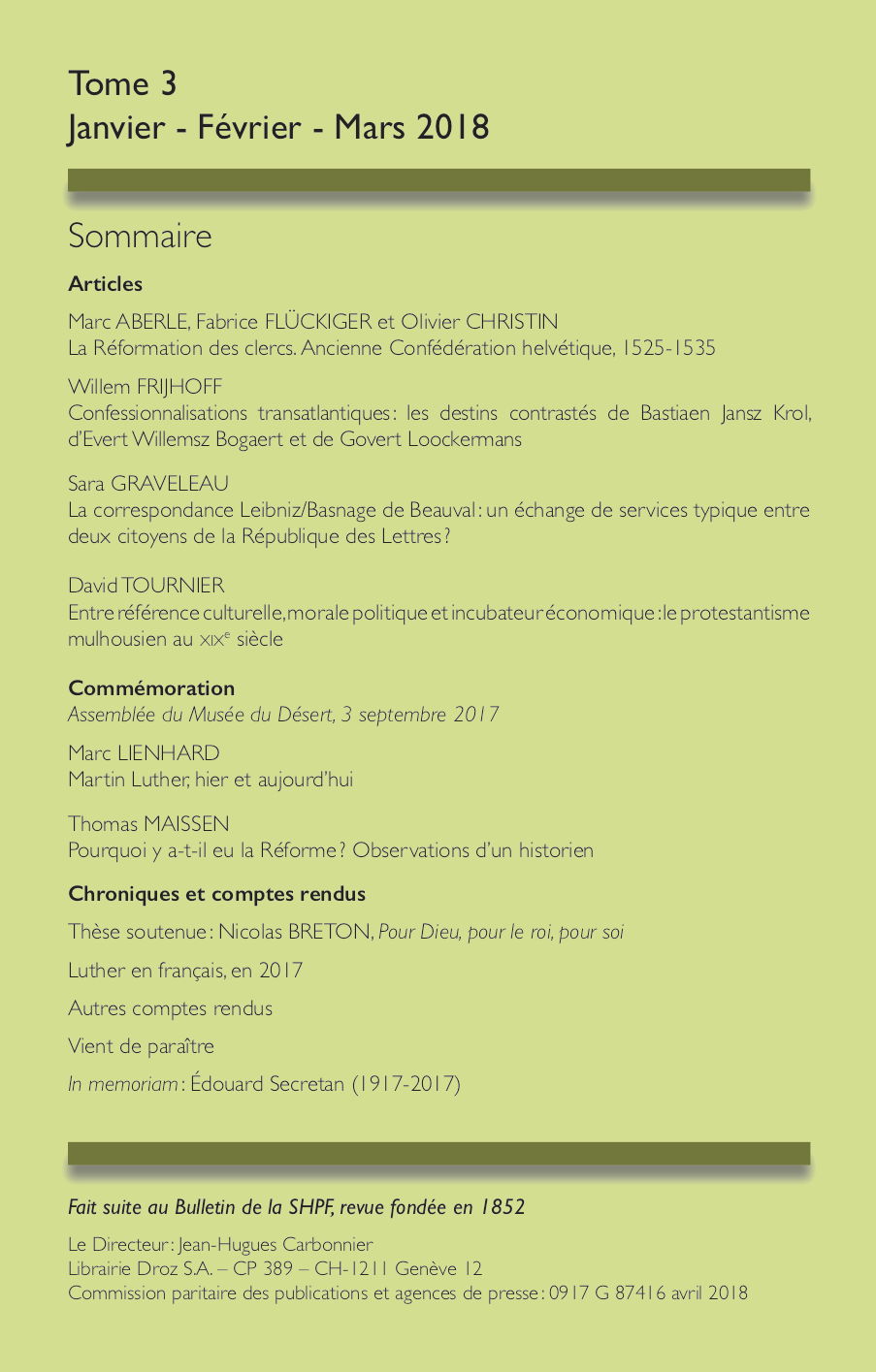Entre référence culturelle, morale politique et incubateur économique :
le protestantisme mulhousien au XIXe siècle
Abstract
This article examines the influence of Mulhouse’s Protestant heritage in the choices governing the city’s modes of governance–that is, their cultural substructure, as well as the religious precepts nourishing them. Focused on the example of Mulhouse in the short nineteenth century (i.e., from the autonomous republic’s union with France in 1798 to its German annexation in 1870- 1871), it considers the decisional processes that led a particularly homogenous Reformed elite to produce political, economic, and social responses to the challenges of their time at the dawn of industrialization. Crossing two periods–the long period of cultural and religious sediments, and the brief time of political and social conjunctures– the present article studies the role of religious affiliation in the way the state officials represented the world as well as the measures they took to arrive at that representation, and investigates the collective dimension of a dynamic policy maker.
